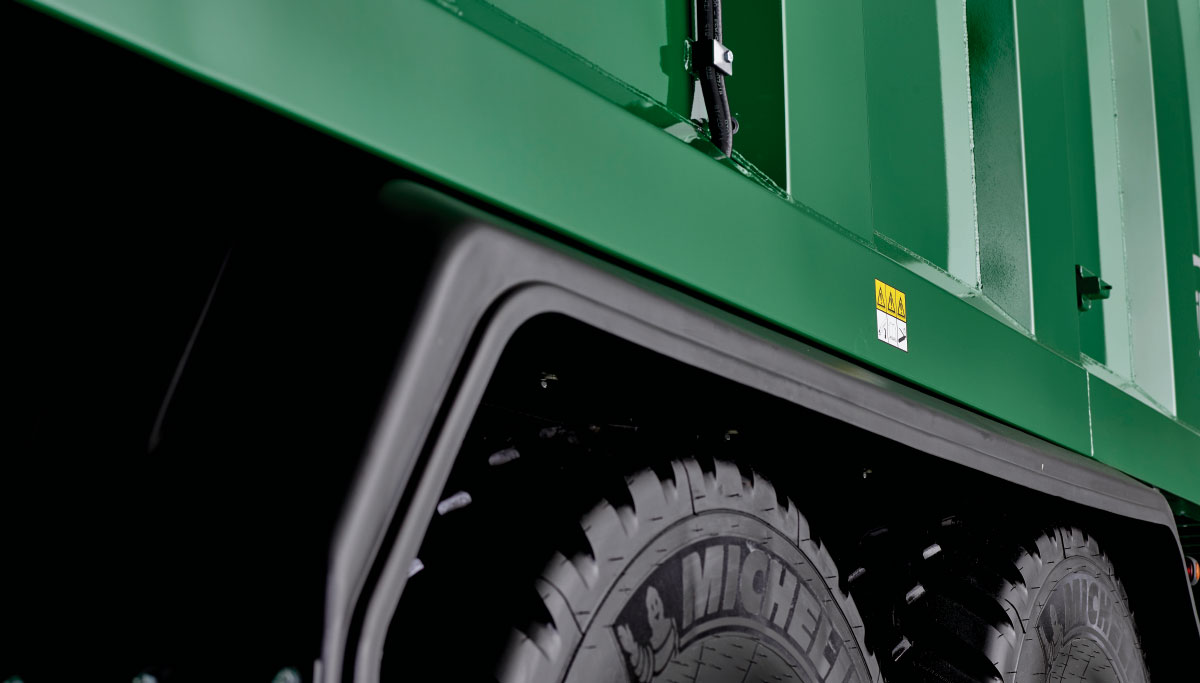
When specifying a new trailer, most farmers will consider the type of loads the trailer will be hauling, the required carrying capacity, how often it’ll be used and the various optional extras available. But how much consideration is given to fitting the correct tyres?
The correct choice of tyre and wheel combination is critical to the performance and safety of your trailer. For example, if your work involves mainly road haulage over significant distances and very little field work, your trailer may be better suited to a truck tyre. However, for significant fieldwork and little road haulage, a flotation tyre is the better option.
Think about speed and capacity
If you are considering a 20-tonne trailer for example, think about whether you will be travelling faster than 40km/h, particularly as some tractors can travel at speeds up to 65km/h.
Always work on the highest potential load/weight scenario, calculate your required carrying capacity based on this figure. It is worth remembering that most tyre failures are the result of overloading the trailer.
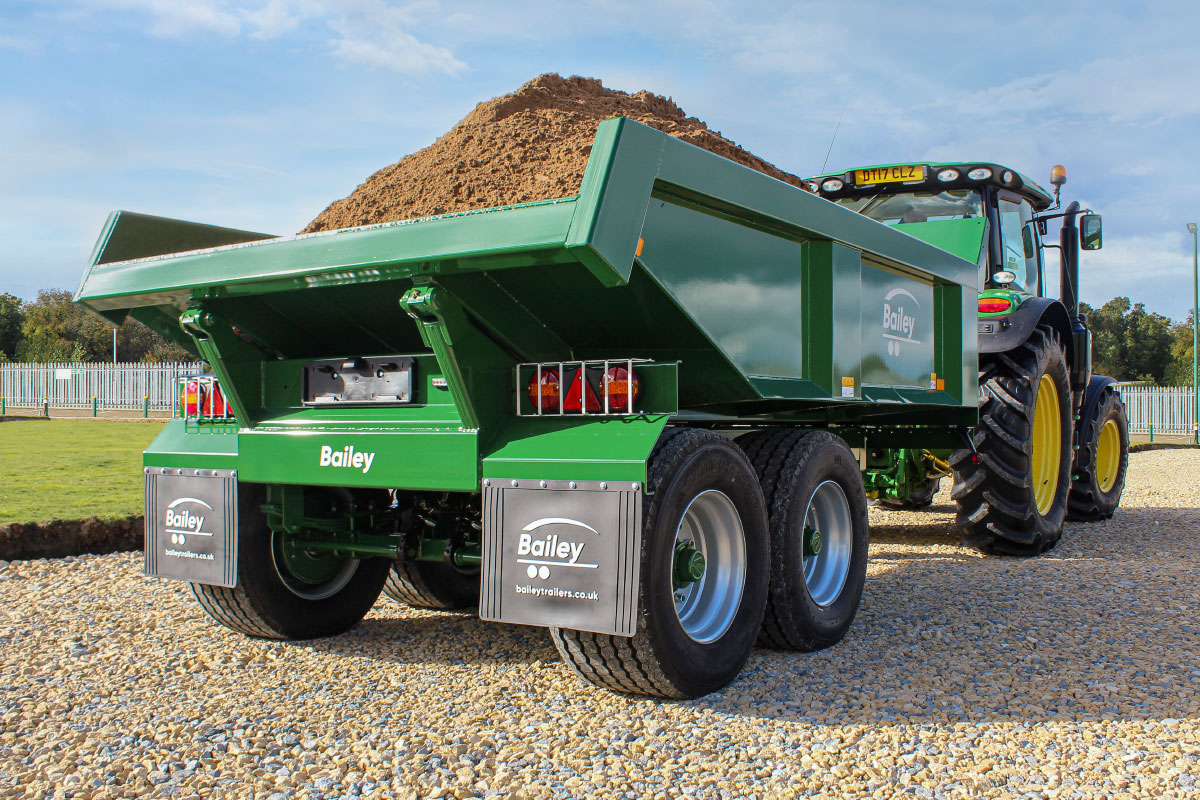
Maintain the correct pressure
It is air pressure that carries the trailer weight not the tyre itself. Therefore, it’s critical that the correct tyre pressure is maintained. Always refer to the tyre manufacturers’ data sheet for the correct tyre pressure, which should be calculated on your worst-case operating weights and speeds. It only takes one journey overloaded/under inflated to damage to the internal structure of a tyre.
Not all tyres are equal
The quality of materials that are used to make a tyre, such as natural rubber, carbon black, steel cord and nylon can vary greatly. Each of these materials have different properties, this can make a big difference to tyre performance.
Many budget tyres are manufactured at the lower end of the specified permitted parameters. The heavier the tyre the more material it has in it, some manufacturers reduce tread depth and rubber in the tyre to reduce cost, which ultimately reduces tyre life.
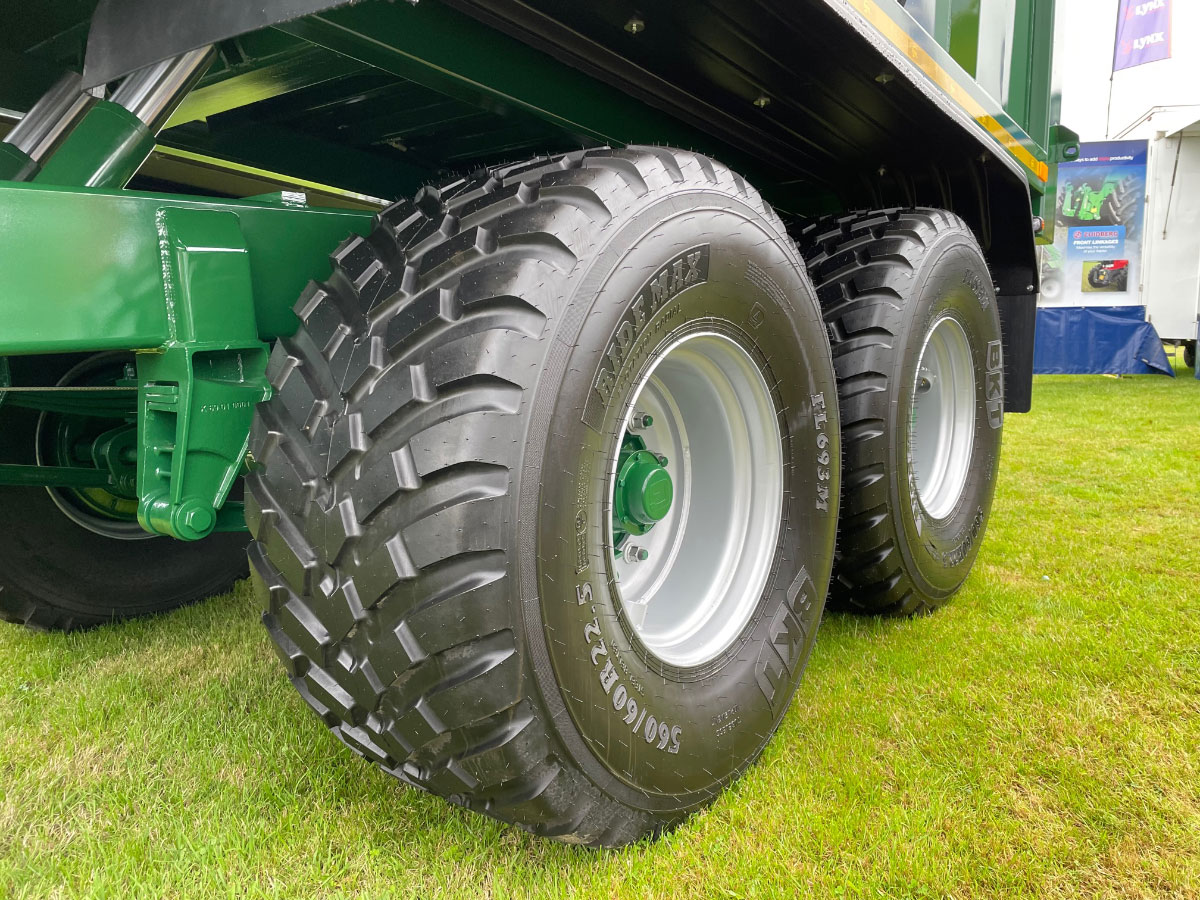
Choose the tyre patterns to suit your application
Tyre manufacturers usually offer a range of patterns for different applications, for example block patterns are designed for 60% road 40% field, whereas a more open centre pattern is recommended for 60% field and 40% road use. Different patterns offer different benefits, such as better self-cleaning and smooth running on the road. These are personal choices depending on the individual user.
Which brands should you consider when buying a trailer?
There are many brands of tyre on the market today, no two brands are alike albeit some are very similar. With so many options available when choosing tyres consider the following:
· What brands are trusted in the market?
· Are you paying for a name, is there a better value option?
· What brands are manufacturers fitting?
· What is the warranty against manufacturing defects (not misuse)?
· Are the tyres well stocked and supported?
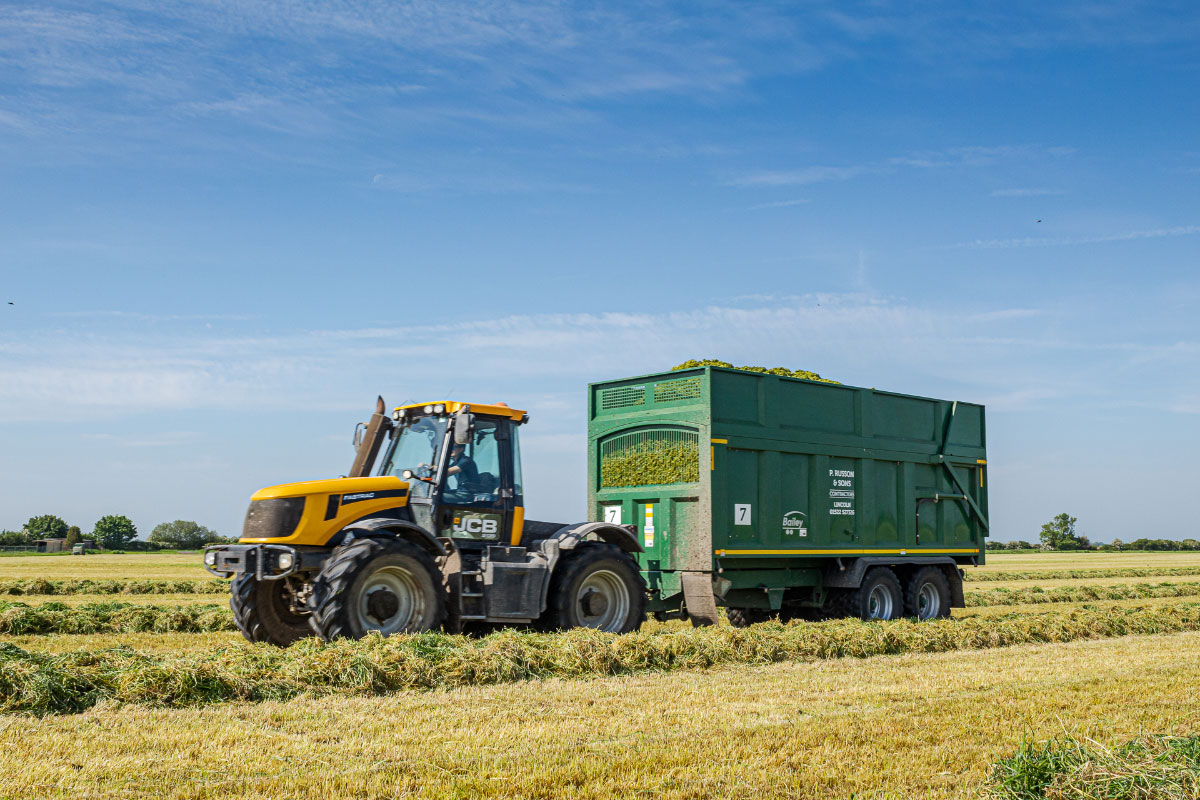
Tyre failures and warranty
The warranty available on a tyre is often misunderstood. A warranty is only offered against manufacturing faults and defects and not misuse.
Tyres fail for a reason, the main cause of failures is either the wrong tyre is fitted for the application (can’t carry the weight), or not enough air pressure to carry the load (underinflation). Underinflated tyres show wear on the shoulders, to avoid uneven wear and ensure maximum tyre life, tyre pressures should be checked daily and topped up where necessary.
The correct tyres and good tyre maintenance will provide many years of trouble-free running.
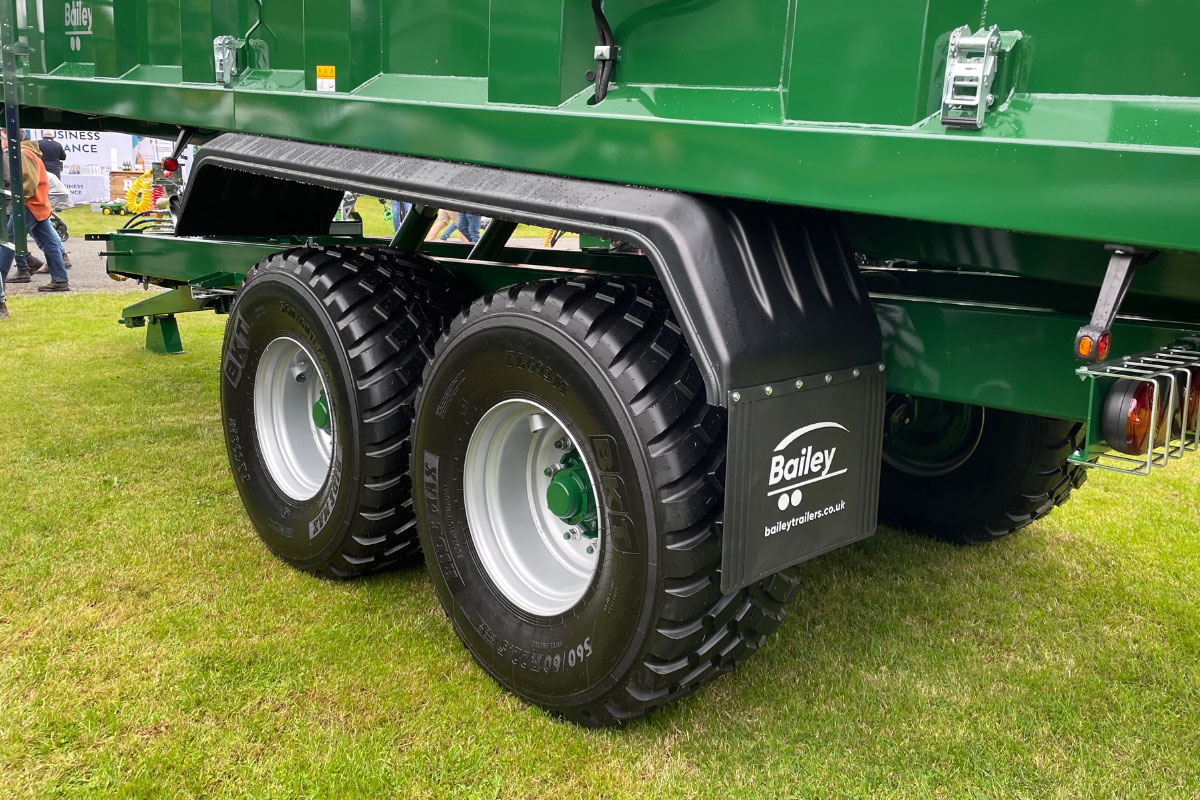
Moving towards 26.5” diameter
The market is now offering a 650/R55R26.5 with a 178D load and speed index. We believe that in many cases this larger size of tyre is the way forward for the following reasons:
· Wider/ longer tyre – larger footprint
· Larger diameter and RC – easier to pull and less chance of sledging in wet field conditions
· Lower ground pressure than smaller conventional radial tyre for same load and speed
· Improved rate of wear as larger contact area than smaller conventional size – 23mm tread depth
· Longer life and less chance of overloading if pressures are managed
· Retain higher aftermarket value for trade-in /sale
· Safer and more stable and when on limit of load – legal
· More stable when tipping
At Bailey we have chosen a comprehensive range of tyres that compliment our trailers and their multiple uses. For more information speak to your local Bailey dealer ››




